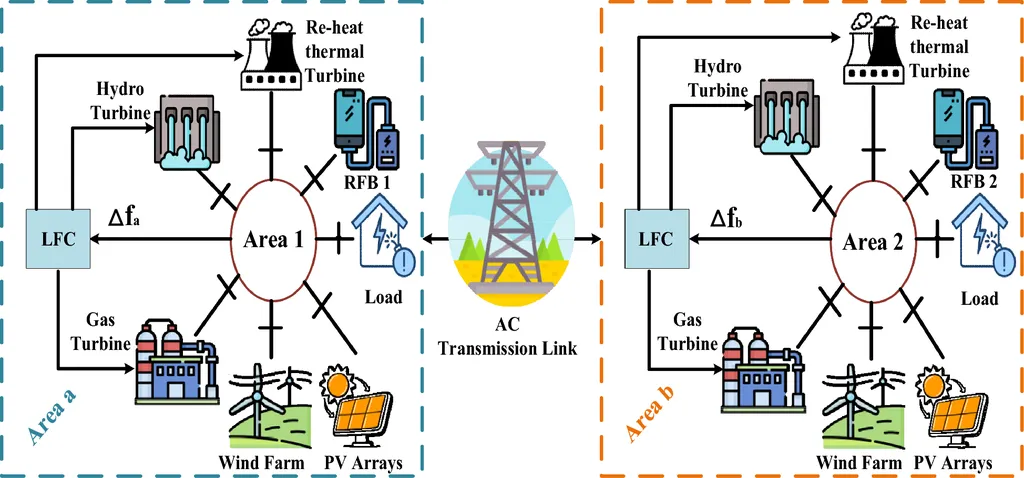In the ever-evolving landscape of energy systems, a groundbreaking study led by Xilin Zhao from the Hubei Key Laboratory for High-Efficiency Utilization of Solar Energy and Operation Control of Energy Storage System at Hubei University of Technology in Wuhan, China, is set to redefine frequency regulation in hybrid AC/DC power grids. The research, published in the English-language journal “IEEE Access,” introduces a novel approach to enhance the frequency support capability of Voltage Source Converter-based Multi-Terminal Direct Current (VSC-MTDC) systems, a critical component in modern energy infrastructure.
The study addresses a significant challenge in the integration of renewable energy sources, such as wind power, into the grid. Traditional frequency regulation methods often fall short when dealing with the unique characteristics of hybrid AC/DC systems. Zhao and his team have developed a sophisticated model that not only analyzes the frequency control mechanisms of VSC-MTDC systems but also proposes innovative solutions to mitigate power fluctuations and improve frequency regulation.
One of the key innovations in this research is the re-identification method for disturbed areas. This method allows for the adaptive adjustment of the operational state of Voltage Source Converters (VSCs) in affected grid areas, thereby reducing power fluctuations that are common in existing approaches. “By dynamically adjusting the frequency droop coefficient based on the frequency deviation degree, we can significantly enhance the frequency support capability of the VSC-MTDC system,” explains Zhao.
The study also introduces an adaptive voltage droop coefficient based on power margin for non-disturbance side VSCs, ensuring a more rational power allocation. This dual-pronged approach not only stabilizes the grid but also optimizes the performance of the entire system. The researchers validated their method through extensive simulations using Matlab/Simulink, demonstrating that their approach outperforms both conventional control strategies and existing adaptive control methods.
The implications of this research are far-reaching for the energy sector. As the world increasingly turns to renewable energy sources, the need for robust and efficient frequency regulation becomes paramount. Zhao’s work provides a blueprint for enhancing the stability and reliability of hybrid AC/DC power grids, paving the way for more efficient and sustainable energy systems.
“This research is a significant step forward in the field of grid frequency regulation,” says Zhao. “It not only addresses current challenges but also sets the stage for future developments in the integration of renewable energy sources into the grid.”
The study’s findings are particularly relevant for energy professionals and stakeholders involved in the development and operation of multi-terminal direct current systems. By providing a more effective means of frequency support, this research could lead to more stable and efficient energy distribution, ultimately benefiting consumers and the environment alike.
As the energy sector continues to evolve, the work of Xilin Zhao and his team serves as a beacon of innovation, guiding the way towards a more sustainable and reliable energy future.

